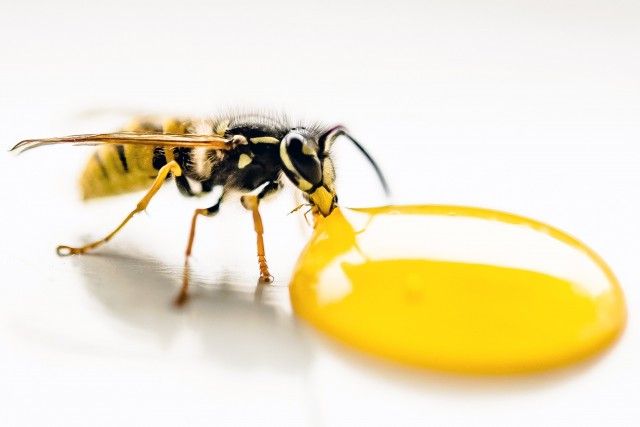Honey

Production:
Production of honey begins with the collection of nectar from various plants, flowers, and buds. Bees ingest raw nectar, process the nectar, then excrete it from glands (known as hypopharyngeal glands). The honey is then stored in a wax coating made from various amino acids (proteins) and vegetable as well as other organic substances. The honey coats the combs of the hive and is stored for later consumption by the workers and queen. Honey production takes a relatively long period of time to accumulate enough amounts of honey for human consumption.
Health Benefits:
Honey is considered a “health food”. The health benefits of honey are well-studied and historically verifiable. Humans have been harvesting honey from bees since the beginning of written history. As of now some benefits of long-term consumption of honey include:
• Wound healing and antiseptic properties (applied externally)
• Cough suppression (lubrication and physical scraping of bacteria)
• Promotes healthy sleep patterns
• Boosts immune system
• Re-energizes drained energy in body
• Potentially increases immunity to some cancers (research pending)
Consumption:
Humans have consumed honey for eons. Honey today is consumed as part of stews, soups, baked goods, and raw (along with millions of other methods of consumption). Honey is considered a “healthier alternative” to traditional cane sugar. This is possibly due to the additional vitamin benefits certain types of honeys might adapt from their plants of origin. Honey often has a significant level of potassium, a mediocre level of calcium, and a small level of magnesium. Honey is traditionally used as a condiment for teas.
Honey Energy Value:
Honey has a very high energy level (roughly 1300 kilojoules per 100 grams, or 13,000 joules per gram). This puts honey at a level of immediate energy very close to traditional sugar. Honey is, therefore, an excellent source of immediate, unstained energy (being burned extremely quickly by the human metabolism).
Recommendation:
It is recommended that humans do, indeed, consume some level of honey at least once a day to experience the benefits it has to offer. Further research should be done on which honeys are the best for everyone based on their individual biological needs. Different sourced honeys (origin) have different health benefits. Adding honey to your daily cereal, tea, yogurt, or oatmeal can have serious long-term health benefits.
When you subscribe to the blog, we will send you an e-mail when there are new updates on the site so you wouldn't miss them.
